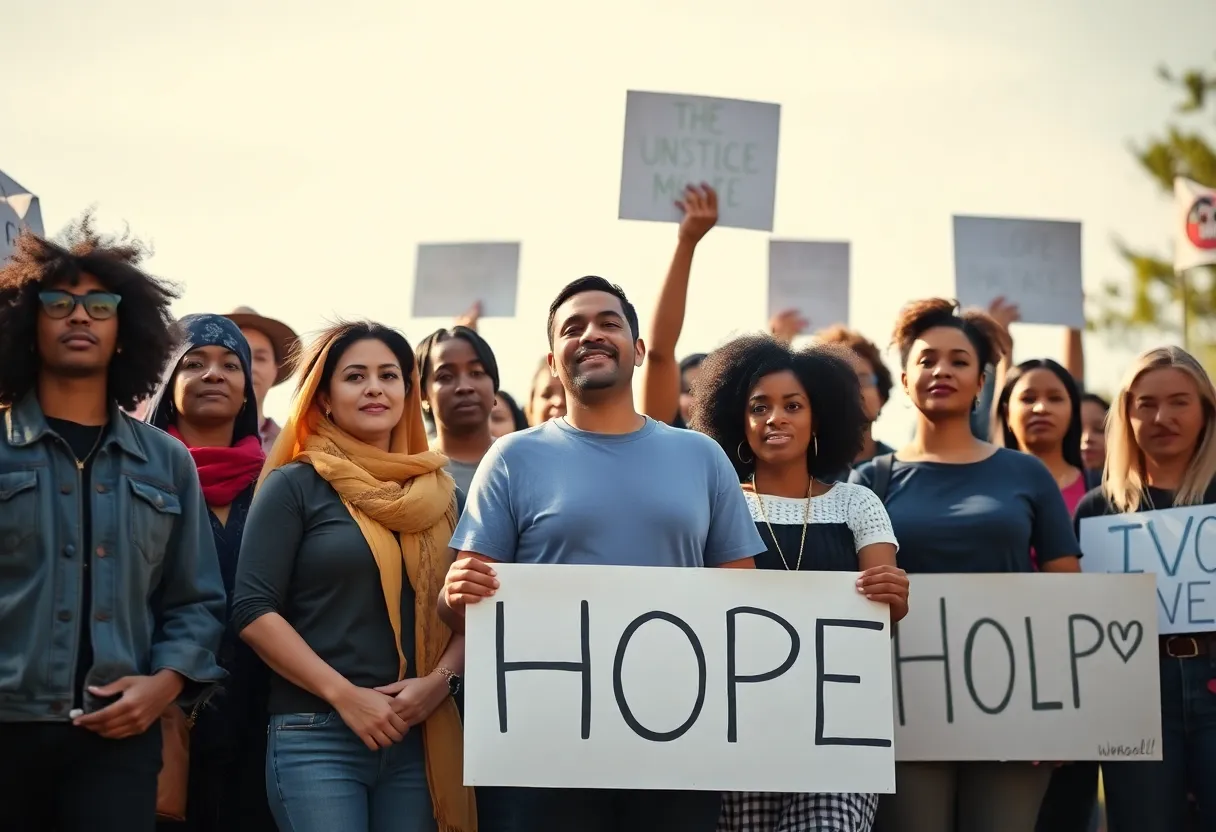News Summary
In a profound gesture, President Joe Biden has posthumously pardoned five civil rights activists, including the legendary Marcus Garvey. This move, occurring just before leaving office, addresses historical injustices and emphasizes Biden’s commitment to racial equity and legal reform. Along with Garvey, pardons were granted to activists like Ravi Ragbir and Kemba Smith Pradia, reflecting a broader initiative to rectify wrongful convictions and showcase mercy within the justice system. These actions aim to uplift communities and renew hope as the nation looks towards a more inclusive future.
President Biden Grants Pardons to Civil Rights Champions
In a heartwarming act of grace, President Joe Biden posthumously pardoned five prominent activists on January 19, 2025, just days before he leaves office. This gesture took center stage, most notably with a pardon for civil rights icon Marcus Garvey. Garvey, who played a crucial role in mobilizing the Black nationalist movement, had been wrongfully convicted of mail fraud back in 1923. His legacy and contributions continue to resonate, inspiring leaders such as Malcolm X and creating initiatives like the Black Star Line, aimed at promoting Black economic empowerment.
Long-Standing Calls for Justice
Many advocates and lawmakers have consistently argued that Garvey’s conviction was not just unjust, but politically motivated to silence his influential voice. Garvey’s ideas and movements laid down a foundation that many continue to build upon today, making this pardon a significant step towards correcting historical wrongs.
More than Just a Single Pardon
The president’s actions didn’t stop with Garvey. Alongside him, Biden also granted pardons to a diverse group of individuals fighting for justice. Among them was Ravi Ragbir, known for his relentless work as an immigrant rights activist, and Kemba Smith Pradia, who has dedicated her life post-incarceration to advocate for criminal justice reform. Smith Pradia was previously granted a commutation by a past president and has been instrumental in shedding light on the failings of the judicial system.
Biden also took action to commute the sentences of two individuals serving life sentences: Michelle West and Robin Peoples. Peoples’ case is particularly striking; he had been serving a staggering 111-year sentence for bank robbery committed in the late 1990s. Meanwhile, West has spent over three decades in prison due to involvement in drug-related offenses, showcasing the often-disproportionate nature of sentencing in the United States.
A Record of Mercy
Broader Context of Racial Equity
These clemency decisions are not just isolated acts; they are part of a grander scheme to address disparities in the criminal justice system that disproportionately affect minority communities. As Biden embarks on his final days in office, these measures reflect a deepening relationship with Black communities and an evolving stance on civil rights, aimed at building a fairer society.
Looking Ahead
With speculation rising about potential future pardons, particularly concerning critics of President-elect Donald Trump, Biden is set to leave a legacy intertwined with compassion and justice. His emphasis on America being a land built on the promise of second chances resonates deeply, especially during these transformative times.
In Conclusion
Biden’s final acts of clemency have reinforced the narrative of hope and renewal. As the nation moves forward, these powerful messages of forgiveness and community upliftment serve as a reminder that everyone deserves an opportunity for redemption. With these changes, we can only hope for a kinder, more inclusive future for all.
Deeper Dive: News & Info About This Topic
- The New York Times: Biden Pardons Marcus Garvey
- The Washington Post: Biden’s Pardons on Final Day
- Fox News: Biden Pardons Marcus Garvey and Others
- CBS News: Biden’s Final Full Day Action Includes Pardons
- Wikipedia: Marcus Garvey

Author: STAFF HERE ORLANDO WRITER
ORLANDO STAFF WRITER The ORLANDO STAFF WRITER represents the experienced team at HEREOrlando.com, your go-to source for actionable local news and information in Orlando, Orange County, and beyond. Specializing in "news you can use," we cover essential topics like product reviews for personal and business needs, local business directories, politics, real estate trends, neighborhood insights, and state news affecting the area—with deep expertise drawn from years of dedicated reporting and strong community input, including local press releases and business updates. We deliver top reporting on high-value events such as Orlando International Fringe Theatre Festival, Megacon Orlando, and Central Florida Fair. Our coverage extends to key organizations like the Orlando Economic Partnership and Hispanic Chamber of Commerce Metro Orlando, plus leading businesses in leisure and hospitality that power the local economy such as Walt Disney World Resort, AdventHealth, and Universal Orlando. As part of the broader HERE network, including HEREJacksonville.com, HEREPetersburg.com, HERETallahassee.com, and HERETampa.com, we provide comprehensive, credible insights into Florida's dynamic landscape.




